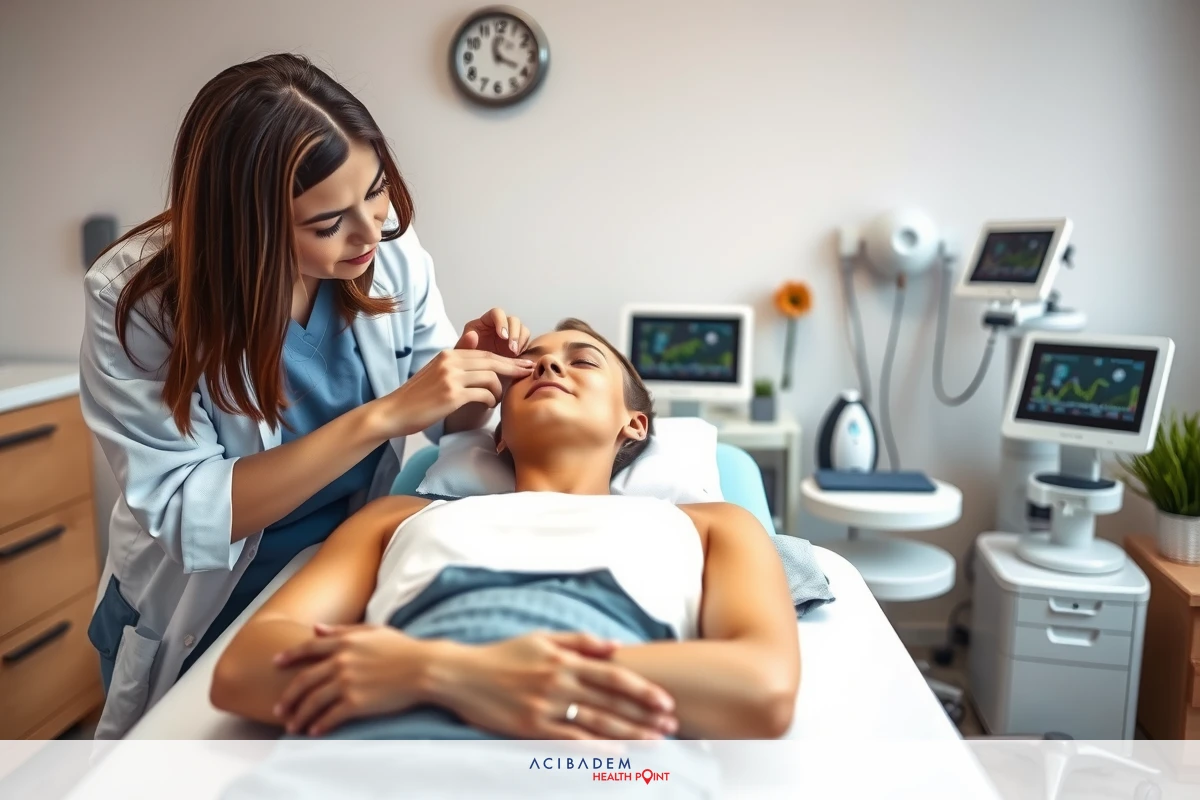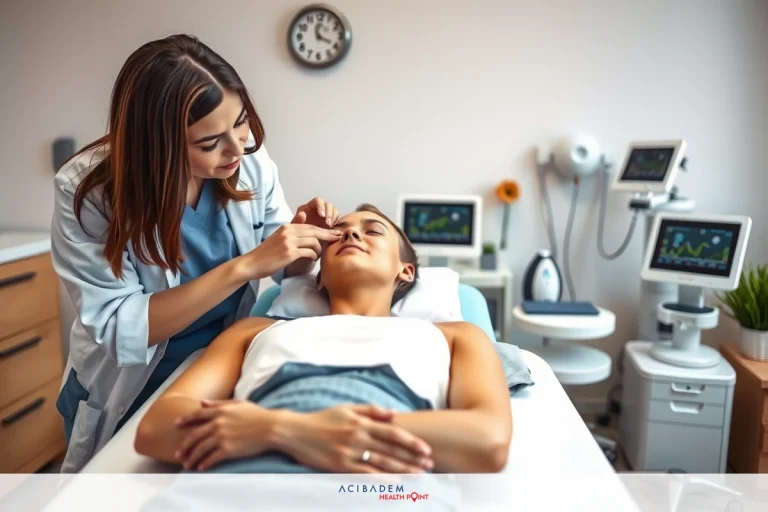Should I Massage My Nose After Rhinoplasty
Should I Massage My Nose After Rhinoplasty Rhinoplasty is a common type of plastic surgery that can improve the function or appearance of the nose. After undergoing such a procedure, post-operative care plays a crucial role in ensuring a successful recovery and achieving desired results. Good post-operative care can help manage swelling, prevent complications, and promote faster healing. One common question many patients have is whether they should massage their nose after the operation.
Understanding the healing process and what you can do to support it is critical for anyone recovering from rhinoplasty. Factors such as your overall health, the complexity of your surgery, and how well you follow post-operative instructions can all influence how quickly and effectively you heal. One aspect of post-operative care that may come up is massaging the nose. It’s important to learn about this aspect of recovery before deciding if it’s right for you.
Benefits of Post-Operative Care
Post-operative care is a crucial part of the recovery process after any surgical procedure, including rhinoplasty. Its main aim is to minimize the risk of complications such as infections, reduce swelling and discomfort, and ensure that the healing process progresses smoothly. For rhinoplasty specifically, proper post-operative care can lead to improved aesthetic results and functionality of the nose.
One significant benefit of following post-operative care instructions diligently is the reduction in swelling. Swelling is a common occurrence after rhinoplasty, but it can be managed effectively through certain post-operative practices such as keeping the head elevated and applying cold compresses. Additionally, some surgeons may recommend gentle massage techniques to alleviate swelling and improve comfort during recovery.
Another essential advantage of good post-operative care is the potential to avoid complications. Complications after rhinoplasty can include infections or breathing problems. Strict adherence to post-operative care instructions can help prevent these issues. For instance, patients are typically advised to keep their nose clean and dry to prevent infection.
Lastly, well-executed post-operative care can contribute significantly to achieving optimal aesthetic results. Rhinoplasty aims not just to improve the functionality of the
nose but also its appearance. By reducing swelling faster and preventing complications, post-operative care can help ensure that the final result aligns with the patient’s expectations.
In conclusion, post-operative care after rhinoplasty should never be underestimated. It offers numerous benefits that contribute to a smoother recovery, fewer complications, and better final results. Whether it involves gentle nose massages or other specific practices recommended by your surgeon, following these guidelines is key for a successful rhinoplasty recovery.
Understanding the Healing Process
The healing process after rhinoplasty is quite complex, owing to the intricate anatomy of the nose. It involves several stages, each with its own characteristics and demands on the body. To help support this process, patients often need to take specific steps as part of their post-operative care, which may include certain types of gentle massage.
In the initial days following a rhinoplasty procedure, it’s normal for patients to experience some swelling, bruising, and discomfort. This is due to the body’s immediate inflammatory response to surgery. Keeping the head

elevated, applying cold compresses, and using over-the-counter pain relievers as advised by your surgeon can all help manage these initial symptoms. Gentle massage might also be recommended to alleviate swelling.
As time progresses, usually within one to two weeks post-surgery, the acute inflammation starts to subside. The body enters a repair phase where it begins to replace damaged tissues with new ones. During this period, maintaining good overall health is crucial. Eating a balanced diet rich in vitamins and minerals can support tissue regeneration, while avoiding strenuous activities can prevent any accidental damage to the healing nose.
In the final phase of recovery, which can last several months to a year after rhinoplasty, the body continues its remodeling process. The tissues in your nose will slowly adapt to their new shape. Throughout this stage, continued adherence to post operative care instructions is vital. Regular check-ups with your surgeon can help monitor progress and address any issues promptly.
The Role of Massage in Rhinoplasty Recovery
The role of massage in the recovery process after rhinoplasty can be quite significant, depending on individual circumstances. It’s important to note that any form of massage should only be performed if recommended and instructed by your surgeon. Incorrectly applied pressure or motion could potentially disrupt the healing tissues, so
it’s crucial to understand how and when to perform these massages.
Massage, when advised, can provide several benefits during the healing process post rhinoplasty. One of the main purposes is to help manage swelling. Swelling is a typical response to surgical trauma. A gentle massage can stimulate blood flow and lymphatic drainage, helping to reduce swelling more quickly. Additionally, massaging may help reshape the nose gently over time, contributing to the final aesthetic result.
However, there are certain considerations to keep in mind when it comes to massaging your nose after rhinoplasty. Firstly, it should never cause pain. If you experience discomfort during or after massaging, it’s crucial to stop and consult your surgeon. Secondly, each person’s need for massage will vary. Some may find it beneficial for their recovery, while others might not require it at all. Your surgeon will be able to give the best advice based on your unique situation and recovery progression.
Frequently Asked Questions
How soon after rhinoplasty can I start massaging my nose?
The timing for starting nose massages after rhinoplasty can vary depending on your surgeon's recommendations. In most cases, you will be advised to wait until the initial healing phase is complete, which is typically around two weeks post-surgery. It's crucial to follow your surgeon's instructions and not initiate any form of massage without their guidance.
What is the purpose of massaging the nose after rhinoplasty?
Massaging the nose after rhinoplasty serves several purposes. It can help reduce swelling by promoting blood circulation and lymphatic drainage. Additionally, it may aid in shaping the nose gently over time, contributing to the final aesthetic outcome. However, it's important to note that not all patients require or benefit from nose massages, hence why professional guidance is necessary.
How should I perform nose massages after rhinoplasty?
The technique for performing nose massages may vary depending on your surgeon's instructions. Typically, a gentle circular motion with clean hands or a soft fingertip can be used. Avoid applying excessive pressure or force that could potentially disrupt the healing tissues. Your surgeon will guide you on the specific technique and frequency suitable for your recovery.
Can massaging my nose after rhinoplasty cause any complications?
When performed correctly and under professional guidance, nose massages after rhinoplasty are generally safe and unlikely to cause complications. However, it's crucial to follow your surgeon's instructions and avoid any aggressive or painful manipulation of the nose. If you experience discomfort or have concerns about potential complications, consult your surgeon promptly.
Are there any situations where nose massages should be avoided after rhinoplasty?
Yes, there are certain situations where nose massages should be avoided. If you have any open wounds or incisions that are still healing, it's important to wait until they have fully closed before initiating any massage. Additionally, if your surgeon advises against nose massages due to specific concerns related to your recovery or anatomy, it's essential to follow their guidance and not perform any massages without their approval.











